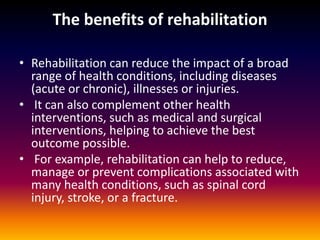Our Narconon Africa Statements
Our Narconon Africa Statements
Blog Article
Top Guidelines Of Narconon Africa
Table of ContentsAn Unbiased View of Narconon AfricaNarconon Africa Things To Know Before You Get ThisIndicators on Narconon Africa You Should KnowNot known Facts About Narconon AfricaThe Definitive Guide for Narconon AfricaNarconon Africa Can Be Fun For EveryoneAll about Narconon Africa
In a collection of papers with Manudeep Bhuller and Katrine V. Lken, we overcome these information obstacles and the nonrandomness of jail time, offering brand-new insights right into how incarceration affects regression, employment, youngsters, and criminal networks - Drug-free life. Number 1 Our job research studies the effects of imprisonment in Norway, a setup with 2 vital advantagesWe can better link this information to other household participants, consisting of youngsters and brother or sisters. We have details on co-offending that enables us to map out criminal networks for observed criminal activities. Second, we can leverage the arbitrary job of criminal instances to courts who differ in their tendencies to send out accuseds to prison.
Some courts send out accuseds to prison at a high rate, while others are much more tolerant. We determine a judge's stringency as the typical imprisonment rate for all other cases a judge handles, after regulating for court and year fixed impacts, which is the level of random job. This quasi-random task of court stringency can be utilized as a tool for incarceration, as it strongly anticipates the judge's choice in the present situation, but is uncorrelated with various other instance attributes both by style and empirically.
The Main Principles Of Narconon Africa
Features of prisoners, including demographics and criminal activity categories, are extensively comparable in Norway and various other nations, including the USA, with the exemptions that the US murder rate is a lot greater, and race plays a larger role there as well. What sticks out as various, especially compared to the USA, is the jail system.
Number 2In Norway, the typical time spent behind bars is a little over six months, which is comparable to most other Western European nations. This contrasts with ordinary US jail time of nearly 3 years, which is in large component the reason the United States is an outlier in its imprisonment price contrasted with the remainder of the globe [Number 1]
3 Simple Techniques For Narconon Africa
This provides much more separation in between minor and solidified lawbreakers than exists in the United States. There is no overcrowding in Norwegian jails and far better individual security, with each detainee being designated to their own cell and a higher inmate-to-staff proportion than in the USA (https://www.bark.com/en/za/company/narconon-africa/ROORl/). Prisons in Norway also provide well-funded education, medicine treatment, psychological wellness, and work training programs
Our research on the effects of incarceration on the transgressor, making use of the arbitrary project of judges as a tool, returns 3 crucial searchings for. Imprisonment prevents better criminal behavior. We discover that incarceration decreases the likelihood that a person will certainly reoffend within 5 years by 27 percentage factors and reduces the matching number of criminal charges per person by 10 charges.
Narconon Africa Can Be Fun For Everyone
We discover large declines in reoffending likelihoods and advancing billed criminal activities even after offenders are launched from prison. Our second outcome is that bias because of selection on unobservable private attributes, if neglected, leads to the wrong verdict that time spent behind bars is criminogenic. If we merely compare criminal defendants sentenced anchor versus those not sentenced, we locate positive organizations between imprisonment and succeeding crime.
This stands in contrast to our analysis based on the random assignment of judges, which finds an opposite-signed outcome. Third, the reduction in criminal activity is driven by people who were not functioning prior to incarceration. Amongst these people, imprisonment boosts participation in programs routed at improving employability and reducing regression, and this ultimately raises work and earnings while discouraging criminal habits.

Jail time causes a 34 portion factor rise in engagement in job training programs for the formerly nonemployed, and within 5 years their work price rises by 40 percent points. At the very same time, the likelihood of reoffending within five years is cut by 46 portion points, and there is a decline of 22 in the average number of criminal charges.
How Narconon Africa can Save You Time, Stress, and Money.

A plausible description for the difference is that Norway's prison system varies considerably, both in regards to prison-term length and jail problems, from the United States prison system. While comprehending the impacts of incarceration on the culprit is a vital very first step, capturing spillover effects is also important for reviewing criminal justice plan and making reliable jail systems.
The 9-Second Trick For Narconon Africa

Common least squares estimates disclose that youngsters of incarcerated daddies are 1 percent factor more probable to be billed with a criminal offense, about a mean of 13 percent, and show no effect on college grades. Utilizing our judge stringency instrument, we find no analytical proof that a father's imprisonment impacts a youngster's own crime or college grades, yet we are not able to rule out modest-sized results.
Get This Report on Narconon Africa
We define criminal teams based on network web links to prior criminal situations. When a criminal network member is incarcerated, their peers' likelihood of being charged with a future crime reduces by 51 percent factors over the following 4 years - https://www.slideshare.net/narconon0346.
Report this page